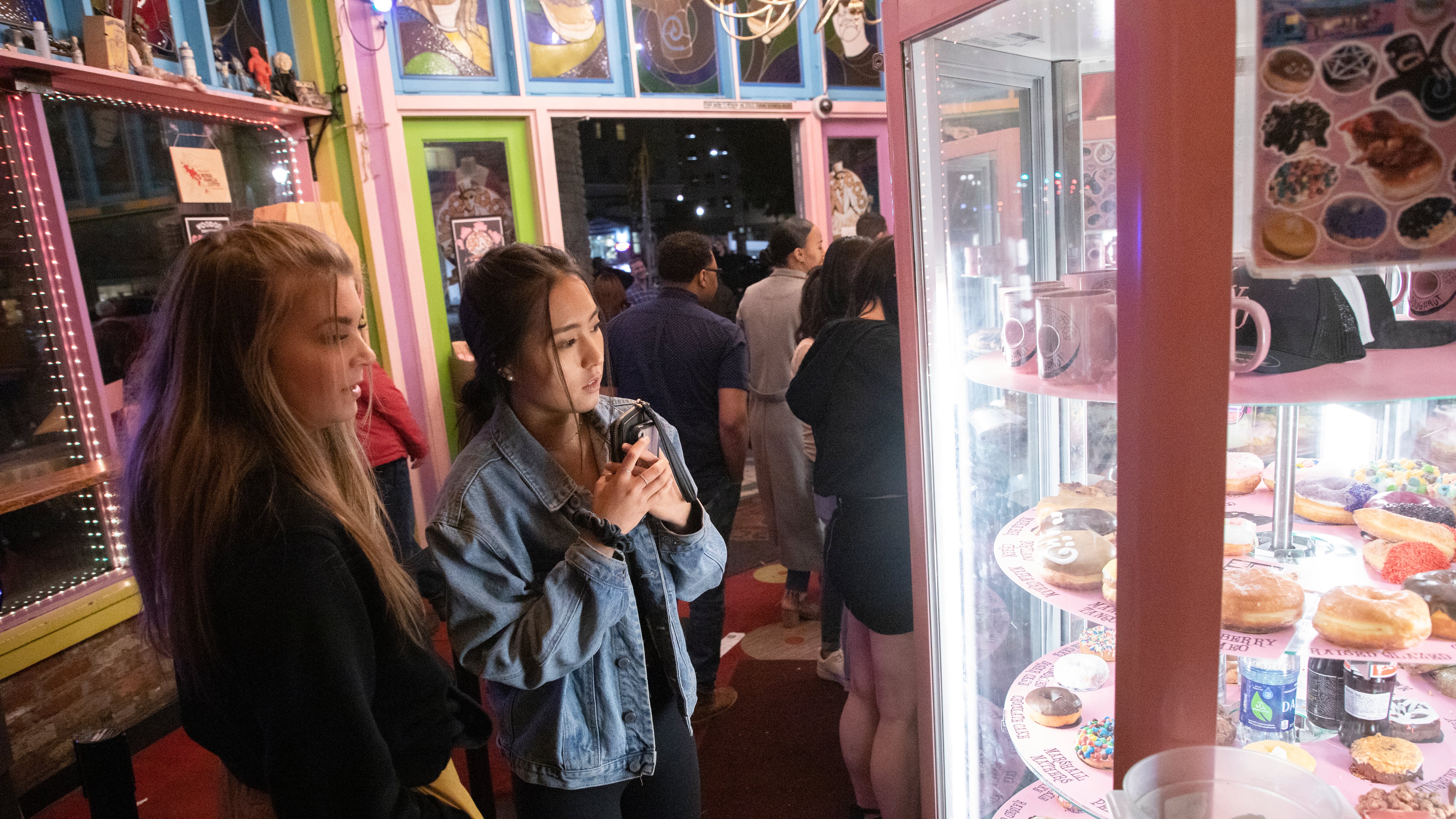Despite the never-ending line of tourists at Voodoo Doughnut’s downtown Portland flagship and the rapid expansion of its shops across the country, there is one place where the business’s signature Pepto-pink boxes of sweets are not welcome: the Big Easy.
New Orleans’ Voodoo religious practitioners and historic preservationists are speaking out against the Portland-founded company, which is seeking to open a new outlet at 823 Decatur St., reports the New Orleans Times-Picayune.
That address is in the heart of the French Quarter just steps from Cafe Du Monde—famed for its beignets and chicory cafes au lait—and the Jackson Square landmark. That location used to house Tujague’s, a restaurant founded in 1856 specializing in Creole cuisine that moved a few blocks away in 2020, though its sign remains in its original spot.
The owner of the building Voodoo may occupy sought to alter the original sign to reflect the doughnut maker’s branding, a switch that’s prohibited under a rule that protects dozens of historic signs throughout the city. The move prompted outcry from preservationists, who want those markers to remain unchanged. The New Orleans City Council has the final say in the matter, a decision the Times-Picayune reports has been postponed until August.
More recently, however, New Orleans’ Voodoo adherents have criticized the business’s name and icons as ethnically and religiously insensitive. The city is a world capital of the religious practice, which traces its roots to West Africa and Haiti (where it’s called Vodou).
“The more I look at it, the more horrible it seems,” leading New Orleans Voodoo practitioner Dianne Honoré told the Times-Picayune of the doughnut shop’s branding. “When people think of Voodoo they think of people of color and then you have these doughnuts that look like characters from Vaudeville or whatever. I can’t find anything cute or interesting or right about it.”

The images Honoré decries as racist include the signature Voodoo Doll doughnut, which is coated in chocolate and depicts a frosted re-creation of an effigy gored by a pretzel, with a wide-open mouth suggesting it’s in midscream. According to the Times-Picayune, a number of religious leaders have characterized it as defiling their beliefs (voodoo dolls have more to do with outdated pop culture—they’re not actually associated with the religion’s Haitian origins), adding that it’s ethnically offensive.
WW asked Times-Picayune reporter Tony McAuley, who wrote the story about the Voodoo Doughnuts controversy, to describe the cultural climate surrounding the debate.
“Honestly, Voodoo Doughnut’s main brand image is a straight up black face golliwog doll, supposedly representing a ‘voodoo doll,’” McAuley tells WW. “I’m not on the ‘woke’ spectrum myself (i.e., I’m moderate on the Culture War issues), but even I can readily see that images they use would be taken by most Black Americans as racially offensive. The owners clearly didn’t consider for a second how their branding and gimmicks might be taken in a majority-Black city like New Orleans, one that is unique in America in that its culture dates to well before the founding of the country (or even the City of New Orleans), to the time African slaves first arrived in the Mississippi Delta in the 1600s.”
The company also finds itself in the unusual position of having offended more than one faction of the city.
“Voodoo Doughnut has managed to piss off both the preservationist folks, who skew patrician, white, Old South, and the traditionalist core of the Black community,” he continues. “Can’t think of any person or organization who’s managed that lately.”
Cultural branding sensitivity has, of course, made headlines in recent years, with a number of companies (PepsiCo/Quaker Oats’ Aunt Jemima, Mars Food’s Uncle Ben) and music groups (Dixie Chicks, Lady Antebellum) tweaking names and icons following public objections.
Whether that list will someday include 20-year-old Voodoo Doughnut remains to be seen. We’re still awaiting comment from Voodoo, a large share of which was purchased by a San Francisco-based private equity firm called Fundamental Capital, as well as co-founder Tres Shannon, and will update this post accordingly once we receive a response. Shannon told the Times-Picayune that he was on a cycling tour of Costa Rica and not caught up on the details of the controversy.

